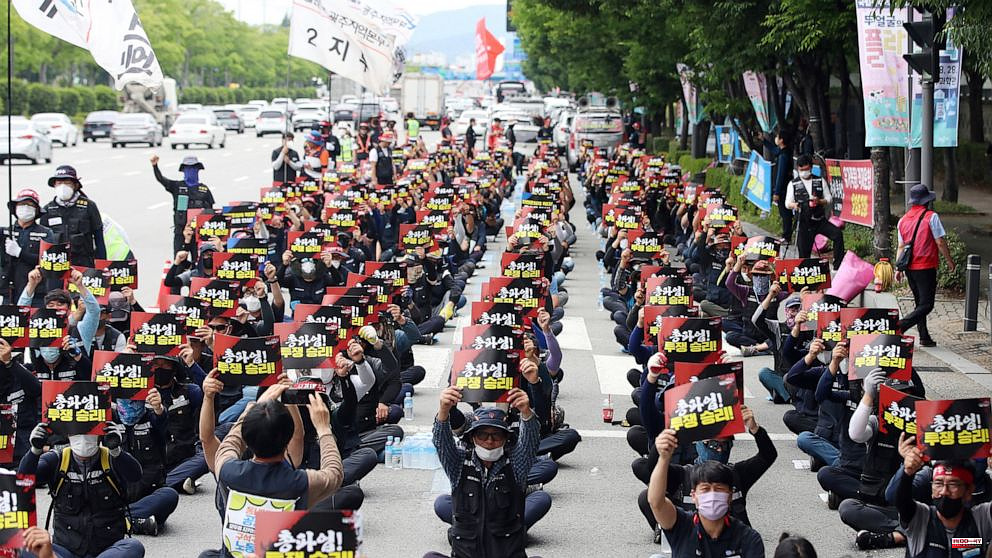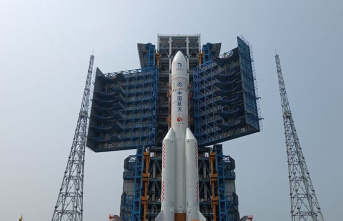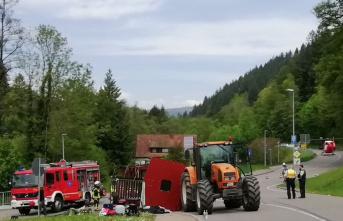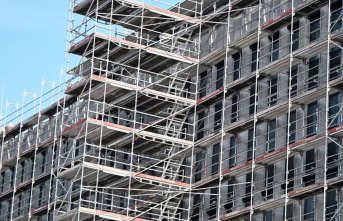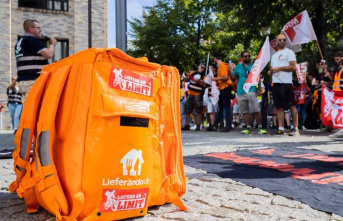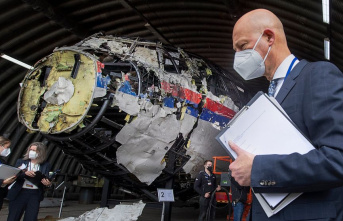SEOUL, South Korea -- A nationwide strike that lasted into the fourth day was extended by South Korean police to include several truckers who blocked traffic and disrupted goods movement near factories.
Truckers want the government to pay a minimum wage, despite the fact that fuel prices are on the rise and threatening their finances.
According to the National Police Agency, about 30 truckers had been taken into custody by police since Tuesday's strike. Sporadic clashes brokeout throughout the country, including near an alcohol beverages factory in Seoul, where 15 people were arrested for allegedly hindering business.
Lee Eung-joo, a representative from the Cargo Truckers Solidarity said that 29 of 40 truckers had been released by police as of Friday evening. According to him, at least nine truckers were minorly injured in the scuffles that erupted with police. However, none of them were admitted to hospital.
The strike was joined by approximately 7,500 truckers.
Business leaders and government officials worry that the strike could further stress an economy already struggling with inflation. It may also impact global supply chains by slowing down shipments of semiconductors from South Korea and other important exports.
The disruptions were minimal, however, as companies had ordered supplies ahead of the strike. Officials tried to keep the shipments moving by temporarily allowing private trucks to transport industrial goods and providing police escorts.
Transport Minister, Ministry of Land, Infrastructure and Transport is currently negotiating with truckers about the minimum wage scheme. According to the Ministry of Land, Infrastructure and Transport, the overall utilization rate for containers at ports and major logistic hubs was 70.7% on Friday afternoon. This is higher than the 65.8% rate.
It said that shipments were slowing down in southern ports of Ulsan, Busan, due to disruptions caused by the strike. This has mainly affected the automotive, steel, and cement industries.

